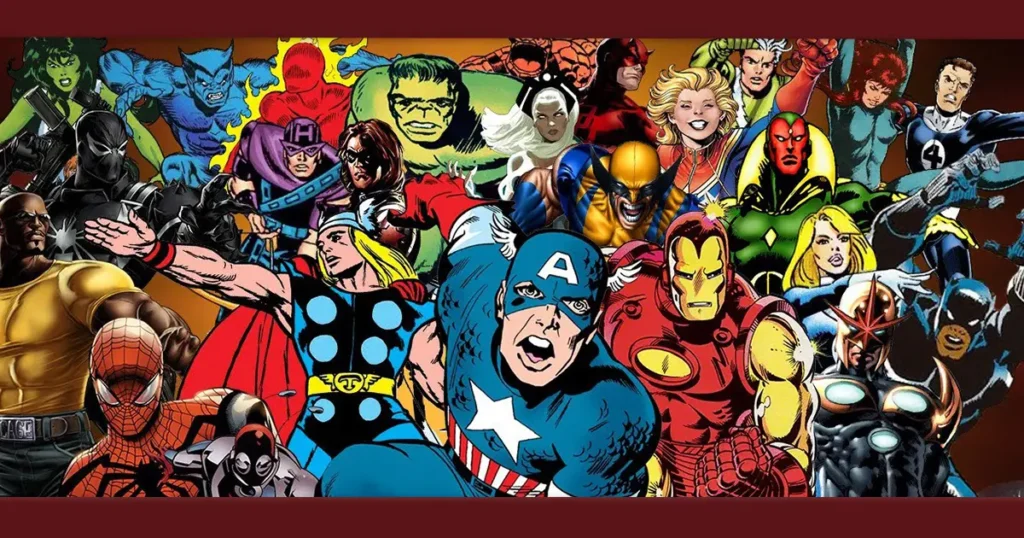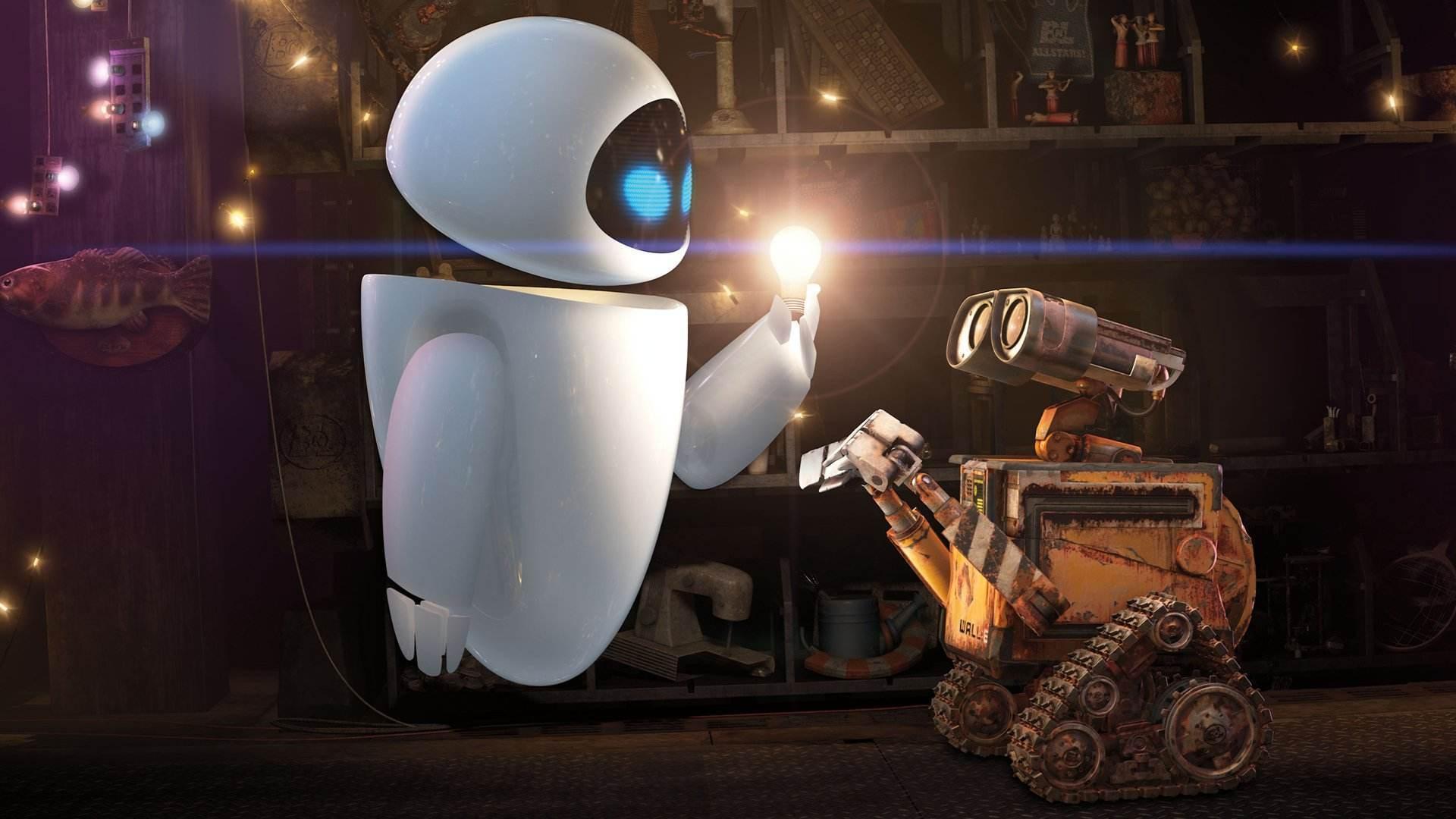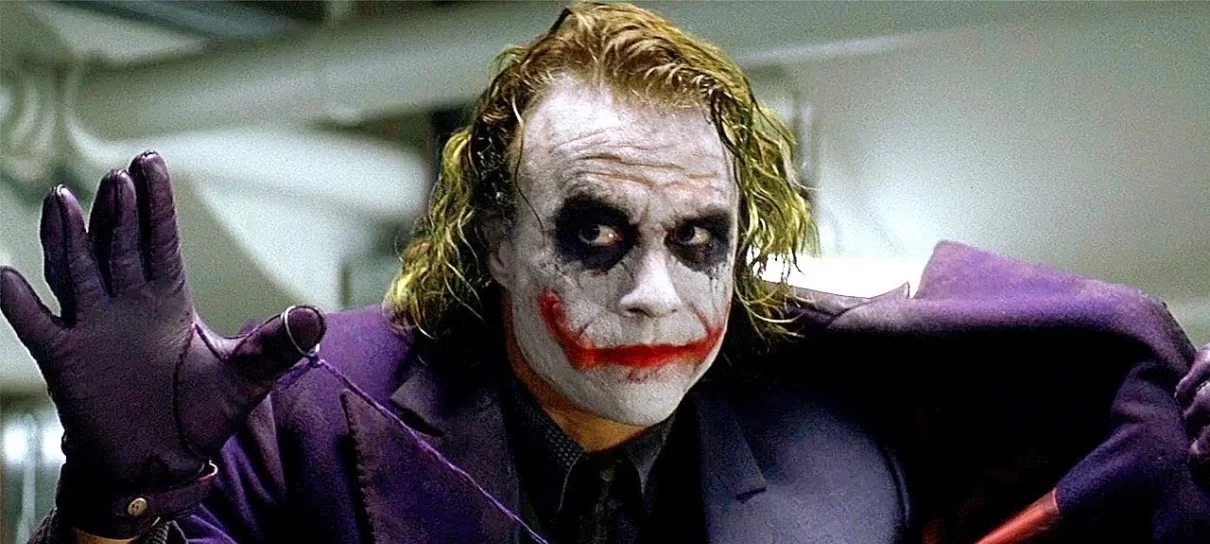Adverts
Diving into the Marvel Comics universe is like embarking on a journey full of surprises, secrets and fascinating stories that have shaped the collective imagination for decades.
From its humble beginnings to its current status as a pillar of global pop culture, Marvel has built a rich and vibrant legacy that continues to captivate and inspire generations.
Adverts
In this text, the proposal is to explore the behind-the-scenes and curiosities that defined the path of this comic book giant, revealing little-known aspects and intriguing facts about its iconic superheroes.
Over the decades, characters like Spider-Man, Captain America and Wonder Woman have become true symbols of courage, resilience and hope. But how were these characters created? What cultural and social influences shaped their stories? The focus will be on uncovering the details that brought these heroes to life, highlighting key moments in Marvel’s history and their lasting impact on society.
Adverts
Marvel's journey has been full of innovations and transformations, and each step is filled with fascinating stories and anecdotes that deserve to be shared.
In addition to exploring the past, we’ll also explore how Marvel continues to evolve and stay relevant in an ever-changing world. Film and television adaptations, for example, have not only expanded the brand’s reach, but also brought new layers of complexity and nuance to the characters. Get ready for an eye-opening journey that not only celebrates Marvel’s legacy, but also offers insight into the future of comics and entertainment. 🌟
The Rise of the Superheroes: How Marvel Shaped the Pop Universe
Since its inception, Marvel Comics has been a driving force in pop culture, bringing to life some of the most iconic superheroes the world has ever seen. It all began in 1939, when the publisher, then known as Timely Comics, released its first comic book, introducing characters that would soon become legends. But it wasn’t until the 1960s, under the creative leadership of Stan Lee, Jack Kirby and Steve Ditko, that Marvel began to solidify its superhero empire.

In the 1960s, Marvel introduced the world to characters like the Fantastic Four, Spider-Man, the Hulk, and the X-Men. These heroes weren’t just super-powered; they had flaws, personal challenges, and inner struggles that made them relatable and human. This innovative approach not only won over fans, but it also forever changed the way comics were told.
The Marvel Cinematic Universe: The Next Level
The transition from comics to film was a bold but highly successful move for Marvel. It all began in 2008 with the release of “Iron Man,” which not only marked the beginning of the Marvel Cinematic Universe (MCU), but also set the standard for superhero films. With its interconnected narrative, the MCU brought the same complexity and depth of the comics to the big screen, winning over a new generation of fans.
Casting charismatic actors like Robert Downey Jr. and Chris Evans helped cement these characters in the popular imagination. The films not only brought an explosion of visual effects, but also engaging stories full of references for the most avid fans. The success of the MCU proved that Marvel not only knew how to tell stories, but also create a cohesive and interconnected universe that keeps viewers eager for more.
Fun Facts Every Fan Should Know
Marvel's history is rich in interesting facts and curiosities that help paint a more complete picture of what the publisher represents. For example, the original name of the famous character Thor was inspired by Norse mythology, but did you know that the hammer Mjolnir has an inscription that says that only those who are worthy can lift it? This little inscription has been a fundamental part of several stories and even memorable moments in the movies.

Another intriguing fact is that Spider-Man almost never got created. Stan Lee faced initial resistance when he pitched the idea of a teenager with spider-like powers, but his persistence paid off when the character became one of Marvel's most popular. Plus, who would have thought that Wolverine, one of the most beloved X-Men, was first introduced as a villain in a Hulk story?
The Heroes and their Complex Plots
Part of Marvel’s enduring appeal is the complexity of its characters and their stories. Unlike older comic book heroes, Marvel characters are flawed and struggle with real-world problems. Tony Stark, for example, isn’t just the genius billionaire behind Iron Man; he also struggles with alcoholism and guilt over the consequences of his inventions.
The X-Men, on the other hand, have been used as powerful metaphors for discrimination and the fight for civil rights. Since their inception, these mutants have represented minorities and those who are marginalized by society. The complexity of these plots has allowed Marvel to address important social issues while still delivering action and adventure.
Stan Lee's Legacy
It’s impossible to talk about Marvel without mentioning Stan Lee, the brilliant mind behind many of the heroes we know and love today. Lee not only co-created iconic characters, but he also revolutionized the comic book industry with his innovative approach to storytelling. His writing style was marked by a light, accessible tone, full of humor and personality, which resonated with readers of all ages.

In addition to his creative contributions, Stan Lee was also known for his appearances in the MCU films, always bringing a touch of humor and nostalgia to fans. His legacy lives on, not only through the characters he created, but also through the lasting influence he had on the world of comics and pop culture.
Exploring the Marvel Multiverse
One of Marvel's most fascinating features is its concept of the multiverse, which allows for the existence of multiple realities and alternate versions of the characters we know. This idea has been explored brilliantly in several comic book series and more recently in the MCU. The introduction of the multiverse not only expands the universe of possible stories, but also allows creators to play around with different narratives and versions of the characters.
For example, Marvel’s “What If…?” series explores alternate realities where events unfolded differently, such as “What If Captain America Had Never Been Unfrozen?” or “What If Thor Was the Ruler of Asgard?” These stories not only offer new perspectives, but also showcase the flexibility and creativity of the Marvel universe.
The Villains: Antagonists We Love to Hate
No discussion of Marvel would be complete without mentioning its iconic villains. After all, what would a great hero be without a villain to match? Marvel has a long list of memorable antagonists, each with unique motivations and traits that make them as fascinating as the heroes they face.
Loki, Thor’s adopted brother, is one of the most complex and charismatic villains, often veering between being an enemy and an ally. Another notorious villain is Thanos, whose quest for absolute power led to one of the most shocking moments in the MCU with a snap of his fingers that wiped out half the universe. These villains aren’t just obstacles to overcome, but rather rich, layered characters who add depth to Marvel stories.
Marvel's Cultural and Social Impact
Marvel’s impact extends beyond entertainment; the publisher has played a significant role in shaping modern culture and society. Its characters and stories often reflect contemporary social issues, from racism and discrimination to corporate responsibility and the ethical dilemmas of technology.
Additionally, Marvel has made efforts to diversify its cast of characters by introducing heroes of different ethnicities, genders, and sexual orientations. Characters like Black Panther and Captain Marvel aren’t just superheroes; they represent important cultural milestones, inspiring generations of fans around the world.
The Magic of Marvel Fandom
One of the reasons Marvel has maintained its popularity over the years is the passion and dedication of its fans. The Marvel fandom is a vibrant and diverse community made up of people of all ages and backgrounds. Whether through conventions, online discussion groups, or fan art, fans find ways to connect and celebrate their love for the Marvel universe.
Interacting with the fandom has also been an important part of Marvel’s success. The company frequently listens to fan feedback and incorporates their suggestions and criticisms into future productions, ensuring that stories continue to resonate with their audience. This not only strengthens the bond between Marvel and its fans, but also ensures that the universe continues to evolve and reinvent itself.
Conclusion
Marvel Comics, with its deep roots in comic book history, has become a true cultural phenomenon that transcends generations. From its founding in 1939 to the creation of the groundbreaking Marvel Cinematic Universe (MCU), Marvel has managed to capture the imagination of millions around the world. 🦸♂️ One of the main reasons for Marvel’s enduring success is its unique ability to create characters that are not only heroes, but also complex human beings with personal flaws and struggles. This makes them relatable and endearing, such as Tony Stark facing his own demons or the X-Men representing the fight against discrimination.
Additionally, Marvel has been visionary in expanding its stories to the big screen, setting the standard for interconnected narratives that keep viewers coming back for more. The casting of charismatic actors and an innovative approach to storytelling have ensured that the films have become global hits. 🎬
Marvel’s impact isn’t limited to entertainment; its characters and stories address contemporary social issues and promote diversity, inspiring a new generation of fans. Heroes like Black Panther and Captain Marvel not only entertain, but also represent important cultural milestones. 🖤
Ultimately, Marvel’s passionate fandom continues to be a pillar of the brand’s success, actively participating in the evolution of the Marvel universe. With a rich legacy and a dedicated fan base, Marvel is poised to continue shaping pop culture for years to come. In short, Marvel didn’t just create superheroes; it created a universe where everyone can find a piece of themselves. 🌟




